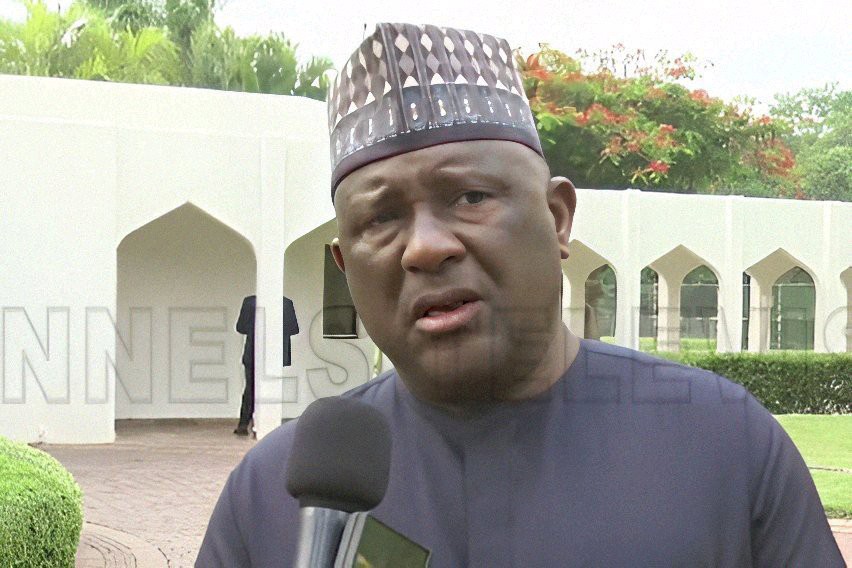Abdul Samad Rabiu, Chairman of BUA Group, has offered a justification for the current cement pricing in Nigeria, pegged around ₦9,000 per bag. According to him, this rate, when translated into U.S. dollars per ton, is in line with global market trends.
In a recent appearance on Channels Television from 06:28, Rabiu broke down the cost implications in light of Nigeria’s economic landscape. “If we consider the exchange rate of ₦1,600 to a dollar, a ₦9,000 bag of cement amounts to roughly ₦180,000 per metric ton,” he explained. “This equates to approximately $110 per ton, which is still lower than what’s obtainable in many African countries, where prices hover around $120 and above.”
When the host pointed out that the product is selling for ₦10,000 in some markets, Rabiu responded that the price he referenced reflects wholesale rates, not retail markups.
Expanding on the conversion, Rabiu noted: “Even at ₦10,000 per 50kg bag, that translates to ₦200,000 per ton. With the dollar at ₦1,600, that would bring the cost per ton to somewhere between $120 and $125, which still aligns with international pricing.”
Rabiu went on to highlight the steep operational expenses businesses face due to the devaluation of the naira and the dollar-linked cost of production inputs. “All our key materials and energy needs are billed in dollars. For instance, at our OBU facility, our monthly gas bill alone has surged to ₦15 billion, up from just ₦5 billion two or three years ago.”
Despite these financial pressures, Rabiu maintained that BUA has managed to keep cement prices stable. “Even with all these dollar-denominated costs—whether it’s for energy, mining, or technical expertise—we’ve kept pricing within the $110 to $120 per ton range.”
On a related note, he also addressed food prices, particularly rice. Rabiu disclosed BUA’s intentions to help bring down the cost of a bag of rice, which he says currently goes for about ₦60,000. He mentioned that stockpilers who bought at higher prices are now facing losses due to a dip in market demand and a gradual price drop.
Hear him speak: “The pattern is okay. All our inputs and energy cost are paid in dollars. Okay, we are paying, one of my factories, the OBU plant, I’m paying 15 billion naira every month just for the gas that we consume on a monthly basis to NGML. 2 to 3 years ago, we were paying 5 billion naira. So, it’s like three times.”
Explore More News By Using The Button Below.

